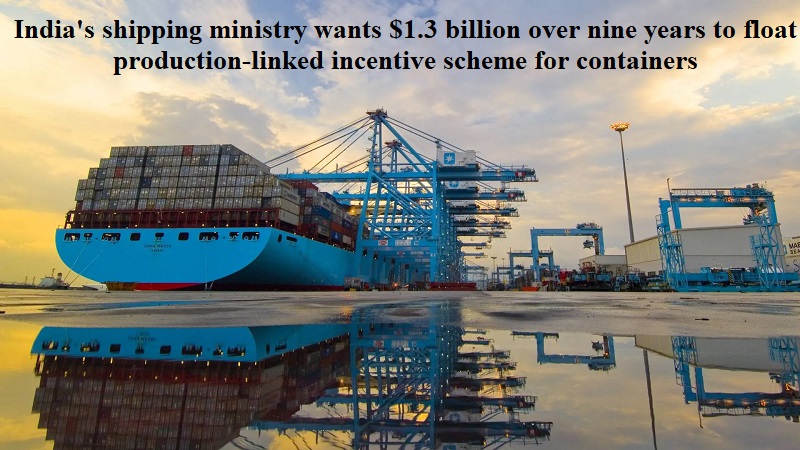
The Indian shipping ministry has significantly increased its funding request for the production-linked incentive (PLI) scheme designed to promote the manufacturing of shipping containers in India. The aim is to establish India as a competitive source for global supplies, challenging China’s dominance. Officials have raised the ministry’s funding request to Rs 110 billion ($1.3 billion approximately), spread over a span of nine years. The first five years will have fixed incentive outlays, while the following four years will witness tapering incentives.
This funding request is around 13 times higher than the budget outlay of Rs 8 billion ($96 million) that was initially indicated by the Expenditure Finance Committee in November. The scheme aims not only to incentivize manufacturing growth but also to narrow the price gap between domestically manufactured and imported containers. Imported Chinese containers, for instance, cost significantly less than Indian ones.
The increased budget aligns with recommendations from the Indian Institute of Foreign Trade (Kolkata) which conducted a feasibility study. The hope is that this higher budget could lead India to capture at least 10% of the global container liner demand, as companies explore diversifying away from a sole reliance on China for manufacturing due to vulnerabilities exposed during the pandemic and trade tensions.
The PLI scheme adds containers as the 15th sector and envisions establishing a new indigenous industry. Presently, India’s domestic producers struggle to meet demand, resulting in reliance on Chinese imports even for major operators like Container Corporation of India.
The scheme would apply to containers of sizes 20 and 40 feet, covering various types including standard, high cube, dry storage, flat rack, open-top, open-side, and refrigerated ISO containers. Eligible companies must be registered in India under various legal forms and must engage in end-to-end container manufacturing.
The initial year of the PLI scheme would match existing price differentials, supporting the cost difference for container manufacturing. Subsequently, the focus would shift to rewarding incremental production. A review after nine years would determine the scheme’s continuation.
The availability of affordable shipping containers is crucial for India’s export industries and supply chain efficiency. This initiative aims to bolster indigenous container manufacturing capacity, ensuring a stable supply even during global scarcities or geopolitical challenges like the pandemic or trade conflicts. This aligns with India’s vision of self-reliance, supported by various PLI schemes announced for different sectors.

Post Your Comments